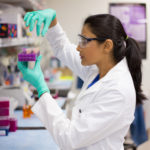
ReNeuron upbeat on trial results of stroke victims treated with stem cell therapy
ReNeuron has reported “highly encouraging” latest stage clinical trial results in regained limb movements in stroke sufferers treated with its pioneering stem cell based therapy (WalesOnline, 2016). RenNeuron relocated to Pencoed from Surrey following a £25m equity investment from institutional investors, led by the Welsh Government’s Wales Life Sciences Investment Fund managed by Arthurian Life … Continue reading ReNeuron upbeat on trial results of stroke victims treated with stem cell therapy
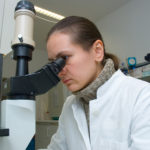
Cardiff University-led study finds the benefits of taking aspirin outweigh the risks to the stomach
A study led by Cardiff University has found that stomach bleeds caused by aspirin are much less serious than the spontaneous bleeds that can occur in people not taking aspirin (Cardiff University, 2016). The extensive study of the literature reveals that while regular use of aspirin does increase the risk of stomach bleeds by about … Continue reading Cardiff University-led study finds the benefits of taking aspirin outweigh the risks to the stomach
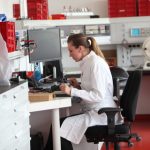
Trauma packs will save lives on Namibian roads
Trauma packs developed by Professor Judith Hall of Cardiff University and colleagues from Cardiff Metropolitan University will be used to tackle the extremely high death rates on roads in Namibia (MediWales, 2016). The Medical Research Council Public Health Intervention Development Scheme, which supports interventions addressing an important global or UK public health issue, is providing … Continue reading Trauma packs will save lives on Namibian roads
University of South Wales scientists secure grant to address antimicrobial resistance
Two lecturers from the University of South Wales have been awarded £14,000 to help develop a revolutionary machine that will improve the accuracy and speed of diagnosing infectious diseases in order to tackle the chronic overuse of antibiotics (MediWales, 2016). Microbiologist Dr Emma Hayhurst and molecular geneticist Dr Jeroen Nieuwland have formed 123 USW, which … Continue reading University of South Wales scientists secure grant to address antimicrobial resistance

Little girl can sit up next to her friends for the first time
A University of Wales Trinity Saint David graduate has helped created a specialist chair that allows a seven year old girl to sit, play and eat alongside her family and friends for the first time. Evie Hopkins, from Swansea, was diagnosed with cerebral palsy, spastic quadriplegia when she was four months old. The condition affects … Continue reading Little girl can sit up next to her friends for the first time

Cardiff University receives £1m investment to look after the brain’s immune system
£1m investment from the Hodge Foundation will enable researchers at Cardiff University to explore the role the brain’s immune system in brain disorders like Alzheimer’s, schizophrenia and epilepsy (Cardiff University, 2016). The new five year partnership will establish The Hodge Centre for Neuropsychiatric Immunology and bring together leading experts in neuroscience and immunology. The centre … Continue reading Cardiff University receives £1m investment to look after the brain’s immune system
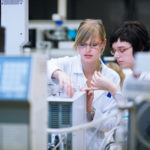
Research will look at 999 calls by people with dementia
A project led by the University of the West of England (UWE Bristol) in partnership with University Hospitals Bristol NHS Foundation Trust is going to look at calls to emergency services by older people with multiple health problems that include dementia (University of the West of England, 2016). Working with East of England Ambulance Service … Continue reading Research will look at 999 calls by people with dementia

Drug that stops brain plaques may show if they cause Alzheimer’s
It’s more than a century since Alois Alzheimer first noticed and reported sticky plaques in the post-mortem brain of a patient with what is now known to have been Alzheimer’s disease, yet there is still disagreement on whether the plaques actually cause the disease (New Scientist, 2016). The role of plaque in the disease has … Continue reading Drug that stops brain plaques may show if they cause Alzheimer’s
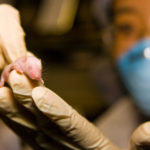
Scientists develop the world’s smallest extracellular needle-electrodes
A research team at the Department of Electrical and Electronic Information Engineering and the Electronics-Inspired Interdisciplinary Research Institute at Toyohashi University of Technology in Japan has developed 5μm diameter needle-electrodes on 1 mm × 1 mm block modules (Scienmag, 2016). The neuron networks in the human brain are extremely complex. Microfabricated silicon needle-electrode devices are … Continue reading Scientists develop the world’s smallest extracellular needle-electrodes

MedaPhor acquires Inventive Medical, as it announces sales growth
MedaPhor have announced the acquisition of Inventive Medical Limited (IML), a UK company which is the global supplier of cardio ultrasound simulation products under the HeartWorks brand, for a total consideration of £3m payable in shares (MedaPhor, 2016). IML’s HeartWorks simulators and online training materials have been developed by leading cardiac anaesthesiologists at University College … Continue reading MedaPhor acquires Inventive Medical, as it announces sales growth








